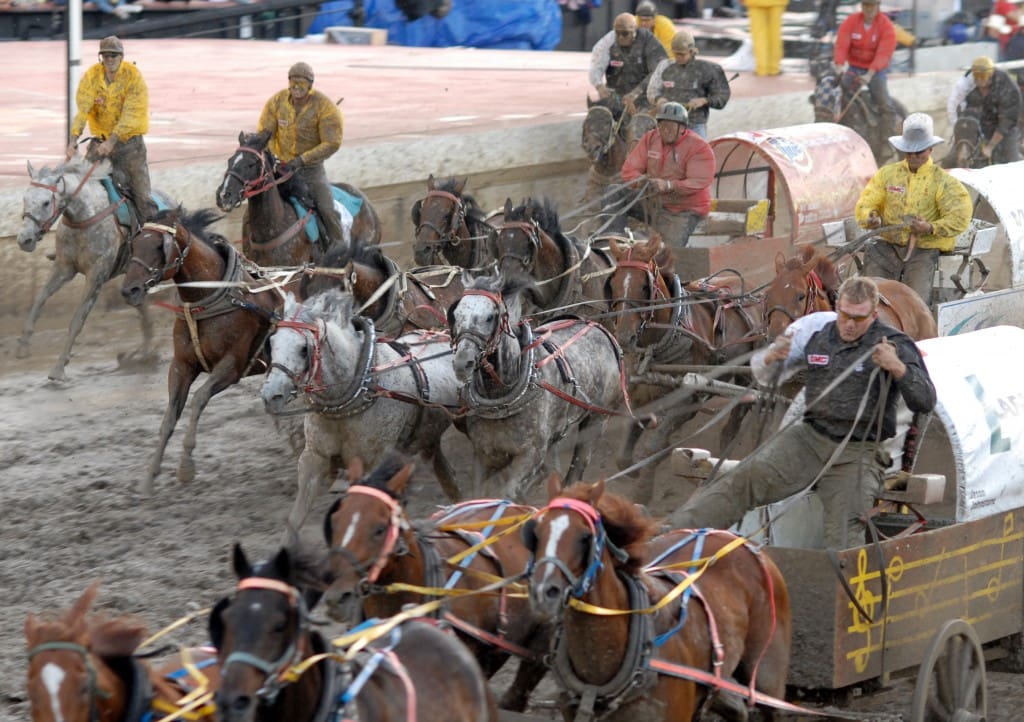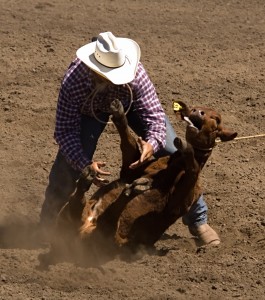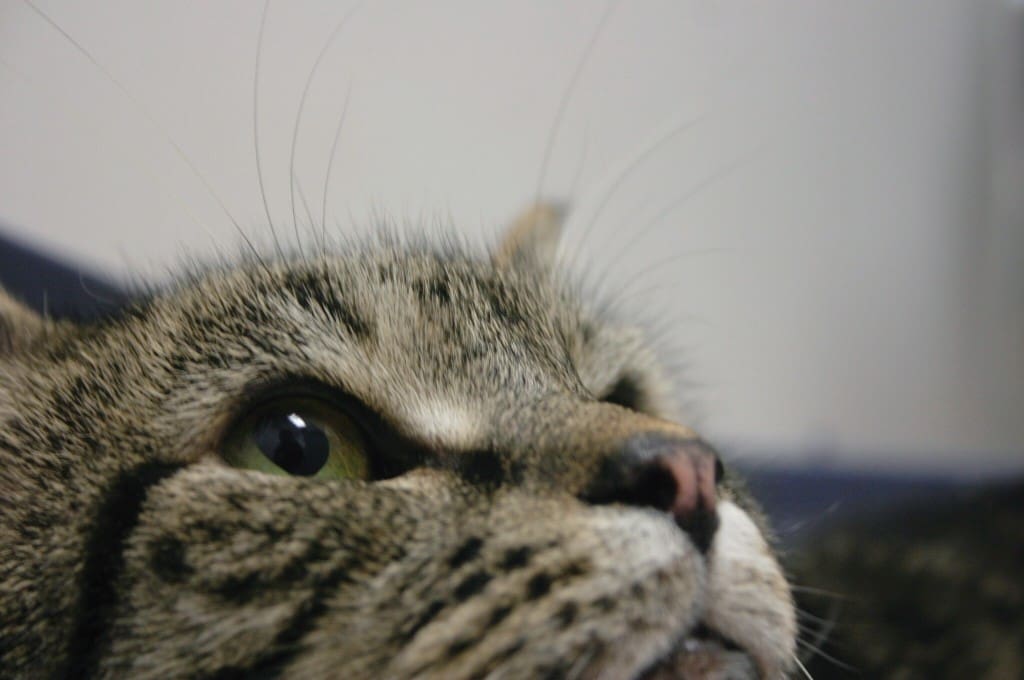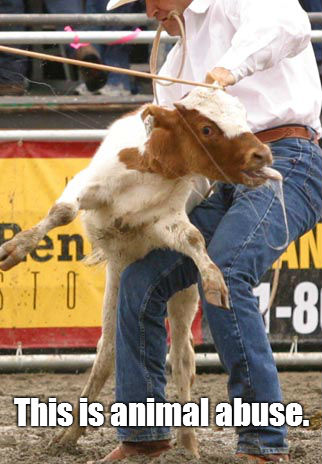
Photo: Jo-Anne McArthur
.
There are encouraging signs that attitudes toward rodeo and chuckwagon races in Canada may be changing, if independent opinion in mainstream media is anything to go by.
A recent editorial in the Vancouver Sun said that it was “hard to argue” with the description of the Calgary Stampede as “a spectacle of animal abuse.”
In the same week, a column in the Ottawa Citizen described the Calgary Stampede chuckwagon race as a “brutal mix of human domination over an animal running at breakneck speed in confined quarters” and asked: “Would we miss it if it disappeared?”

Another column in the Calgary Herald, authored by a member of the Herald’s editorial board stated: “…the bottom line is these animals are still being used for sheer entertainment in events that can cause them traumatic injuries and death — and it is unnecessary for them to be subjected to this. Are we humans so hard up for entertainment that we must amuse ourselves by watching events that can cause animals to suffer and die?”
Elsewhere on the prairies, an editorial in the Moose Jaw Times-Herald criticized the Calgary Stampede, stating: “Shutting down the rodeo portion of the Stampede deserves serious consideration.”
Meanwhile, the BBC drew international attention to the deaths of chuckwagon horses at the Stampede with a lengthy analysis titled “Why horses die on the half-mile of hell”.
Update: Yet another opinion piece (in Metro News Canada) critical of the chuckwagon race has been published.
Update: An article in the Ottawa Citizen describes watching the CBC coverage of the Calgary Stampede, stating:”…it was impossible not to feel empathy for the poor animals, so clearly unwilling participants in this painful and terrifying circus. In the name of tradition, the CBC broadcast an ugly and cruel spectacle, one that felt like it took place in a dark, shameful past that the public no longer wanted to acknowledge, or had an appetite for.”
Aside from media comment, it should be remembered that virtually all mainstream animal welfare agencies oppose rodeo.
A 2013 public opinion poll showed that the majority of B.C. residents are opposed to rodeo. Maybe that sentiment is beginning to spread across the country. Let’s hope so.





 Meanwhile, rodeos routinely torment animals and hand out prize money to reward the abuse. Just because an animal is “livestock” doesn’t mean it can’t feel the same fear and stress that other animals do. Cruelty is cruelty.
Meanwhile, rodeos routinely torment animals and hand out prize money to reward the abuse. Just because an animal is “livestock” doesn’t mean it can’t feel the same fear and stress that other animals do. Cruelty is cruelty.